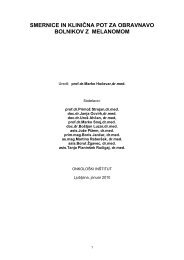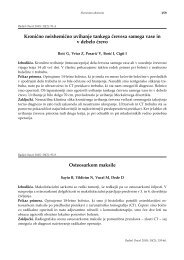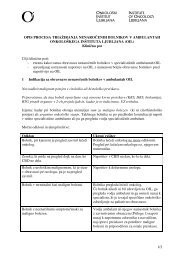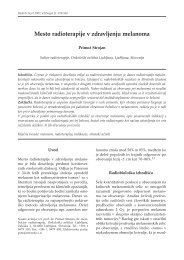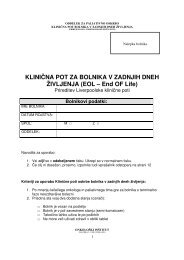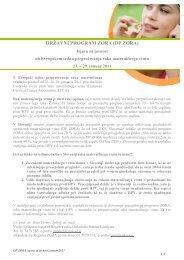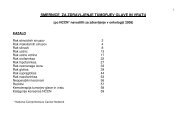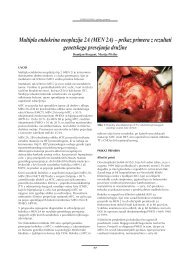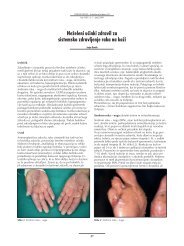Create successful ePaper yourself
Turn your PDF publications into a flip-book with our unique Google optimized e-Paper software.
l55<br />
73<br />
Chemotherapy-induced cell death and its assessment in vivo<br />
Engin Ulukaya<br />
Dept. <strong>of</strong> Biochemistry, Medical School <strong>of</strong> Uludag University, 16059 Bursa, Turkey<br />
Oncologists are always concerned about whether or not chemotherapy succesfully kills the<br />
cancer cells in their patients. It is thought that the mode <strong>of</strong> cell death could be apoptosis,<br />
which is also called programmed cell death, although the other cell death modes may also<br />
be possible. One <strong>of</strong> the characteristics <strong>of</strong> apoptosis is the distruption <strong>of</strong> cytoskeleton in<br />
which cytokeratin 18 constitutes the major part. Once cells have undergone apoptosis,<br />
cytokeratin 18 is cleaved at certain positions by apoptosis-spesific proteases, also known as<br />
caspases. After the cleavage, a neo-epitope is formed. Caspase-cleaved cytokeratin 18 (M30<br />
antigen) is released into blood stream, following apoptosis. This neo-epitope is recognized<br />
by so-called M30 antibody. Using an ELISA assay for M30 antigen, it is possible to detect<br />
the soluble M30 antigen in serum <strong>of</strong> patients prior to and after the chemotherapy, which<br />
allows to estimate the efficacy <strong>of</strong> the drugs in vivo. In our recent study with lung cancer<br />
patients (Ulukaya et al, 2007), we found that M30 antigen level statistically significantly<br />
increased after the application <strong>of</strong> chemotherapy. Likewise, it elevated in breast cancer<br />
patients following chemotherapy as well. The basal levels <strong>of</strong> M30 antigen may also have<br />
a potential to use it as a predictor <strong>of</strong> the prognosis <strong>of</strong> patients. M30 antigen seems to be a<br />
favorable novel serum marker in the better management <strong>of</strong> cancer patients although more<br />
clinical studies are required.



